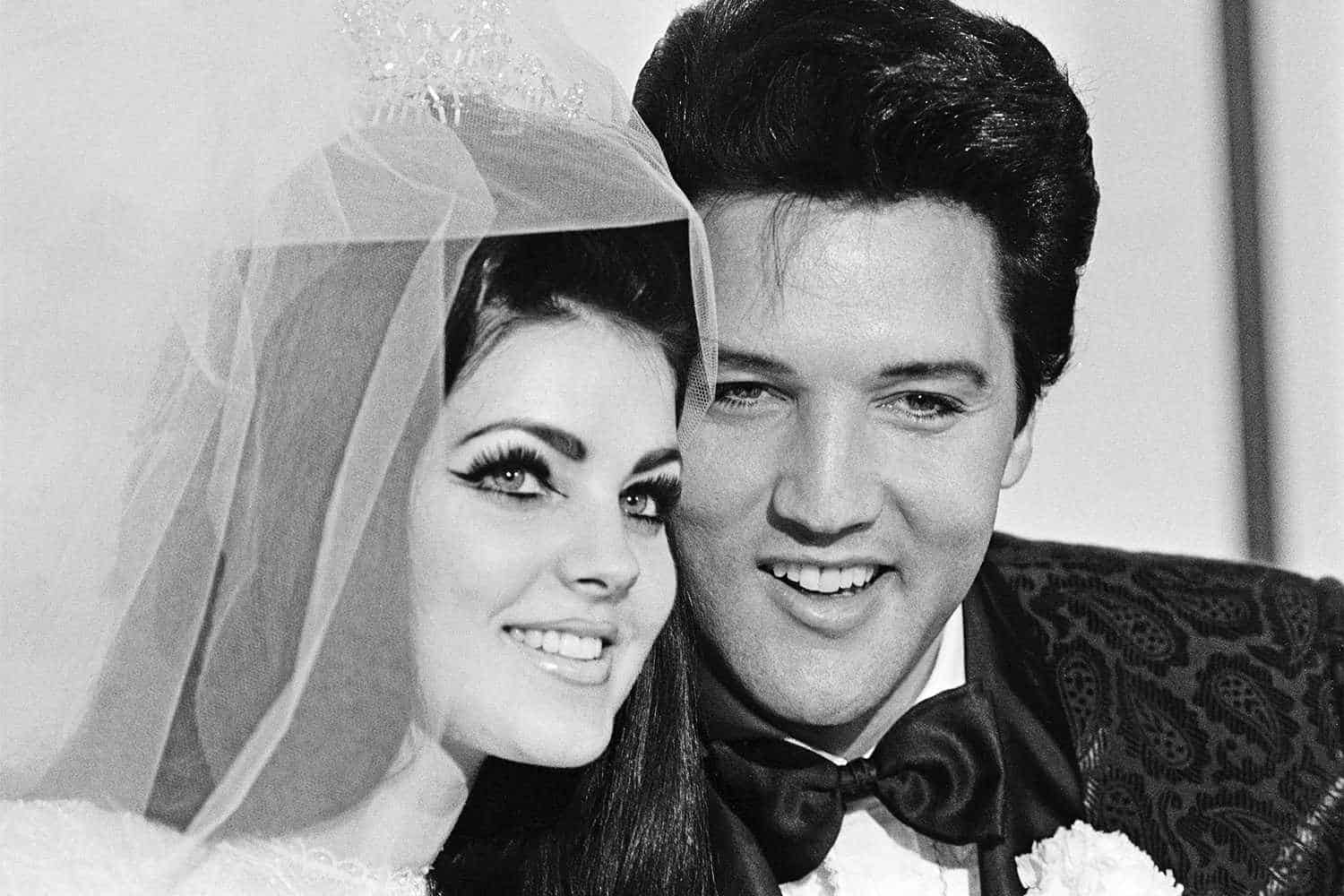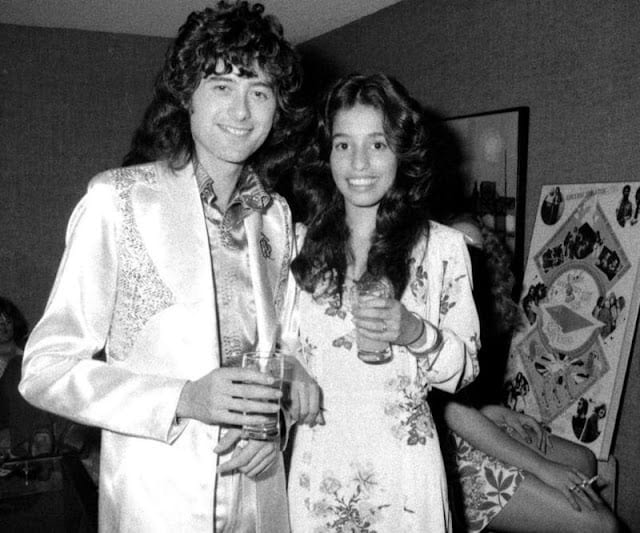by Taylor Dakota
The rock scene was supposed to be a safe space, a refuge for those who felt different to feel a part of something bigger than themselves. And for many growing up, it was precisely that; a place where they were united with others who shared a similar passion: music. But for many young girls, women, and female-aligned people, that’s never been anything more than a façade.
The truth is that the rock scene isn’t always that safe space, and it never was. Not for everyone, at least. In fact, to this day, almost every woman and female-aligned person in the scene seems to have some sort of horror story, from grooming to sexualization/fetishization and more. And to understand why it’s still happening, the subculture of misogyny ingrained into the scene’s very essence must be acknowledged and examined.
In 1956, Elvis Presley, aged 21, released his self-titled debut album, Elvis Presley. It charted at No. 1 in both the US and the UK and was the first-ever rock and roll record to chart that high. The album and its popularity soon had Presley dubbed “the King of Rock ‘n’ Roll,” and as the King rose in admiration with the public, so did the rock genre. However, also in 1956, Priscilla Beaulieu, then just 11, listened to the Elvis Presley record for the first time. Three years later, in 1959, the two met and began their love affair, Presley now aged 24, and Beaulieu still underage at 14. Thus starting the acceptance of the toxic cycle of predatory behavior that we still see in the scene today.

Because it didn’t stop there, and why would it have? If the man who’s known as the King of the whole genre could get away with dating an underage fan, then, of course, other rock musicians (and keep in mind this is and has always been a male-dominated genre) would assume they’d be able to escape punishment from such immoral behavior as well. And they were right. By 1969, the term “groupie” had been coined to describe young girls and women who followed (and made themselves sexually available for) touring rock stars from performance to performance.
The outdated “groupies come with the territory” mind frame, wherein anyone female or feminine gendered, presenting, or aligned, is expected to bend to the desires and whims of male musicians, is sexist in and of itself. However, the “baby groupies” of the 70s, schoolgirls as young as 12 who slept with some of the biggest names in rock, took that misogyny even further by making it predatory.
David Bowie, Led Zeppelin’s Jimmy Page, Aerosmith’s Steven Tyler, and “Godfather of Punk” Iggy Pop are just some of rock’s biggest stars that preyed on these young girls. Yes, preyed. Because did these adolescent girls actively seek out the affection of these men? Indeed, they did. However, is it the responsibility of a child to set appropriate boundaries and expectations with grown adults? Absolutely not. Especially when faced with a situation where the power dynamic is already so imbalanced, such as with fans and the artists they support.

So in 1972, when 14-year-old Lori Maddox was told by Led Zeppelin’s manager, “You’re coming with me, young lady,” at a party, and was whisked off to 28-year-old guitarist Jimmy Page’s hotel room, of course, she spent the night with him. After all, Maddox had already lost her virginity the previous year to then-24-year-old David Bowie; her best friend Sable Starr had been with countless rockstars since she was 12, most notoriously Iggy Pop. So understandably, this insane, borderline kidnapping situation turned two-year love escapade must have seemed at least somewhat acceptable to her.
Unfortunately, things hadn’t improved much by the 80s. In this decade, the now classic rock band Motley Crue was founded, signed, and skyrocketed into stardom. It was also in this decade that bassist Nikki Sixx and drummer Tommy Lee took complete advantage of a fan’s trust, as written about in their 2000 autobiography, The Dirt.
When Sixx met this young woman at a party, she agreed to hook up with him there. However, at some point, Sixx stopped, saying he had to use the restroom. Really, he went to grab Lee, telling the drummer that he should be the one to hook up with her now. Except, neither man ever informed this woman, who had only consented to Sixx, of the switch up. And being as he stood behind them the entire time, the young woman was tricked into believing Sixx was the only one she was with.
Of course, both band members at the time believed this to be nothing more than a hilarious joke. And how can anyone be shocked? The expectation of the time was that women and girls in the scene were there solely for male pleasure. The only thing they were suitable for was the usage of their bodies, a mindset that was continuously reinforced by some of rock’s biggest and most abhorrently sexist music.
From Guns n’ Roses’ “It’s So Easy” of the 80s to Aerosmith’s “Walk This Way” of the 70s, problematic lyrics have fueled rock music since the 1960s. With the glorification of breaking down the spirit of women through songs such as Bob Dylan’s “Just Like A Woman” (“Then you ache just like a woman / But you break just like a little girl”) and The Rolling Stones’ “Under My Thumb” (“The way she does just what she’s told down to me / The change has come / She’s under my thumb”), it’s no wonder women, girls, and female-aligned people in the scene are still having issues today. Because the problem with having an abundance of music that praises treating female and feminine gendered, presenting, and/or aligned people as if they’re not human is that it normalizes the horrors they’re subjected to. And once that treatment is standardized as a cultural norm, it’s tough to undo. Hence the reason it’s still so prevalent in the rock scene today.
In fact, the over-sexualization of femininity is exactly why rock has been so exclusionary when it comes to women and female-aligned people. So exclusionary that rock legend Joan Jett was told that “girls don’t play rock and roll” when she was a teen starting guitar lessons. Because a girl playing rock music would no doubt be sexualized, and that sexuality was already reserved in the scene for the satisfaction of its male musicians. Nobody was ever going to take her seriously as an artist. Thankfully, Jett proved him wrong, even if it wasn’t easy.

Unfortunately, Joan Jett is not the only woman in rock music that’s had to deal with an archaic state of mind regarding them. In fact, the sexism that fuels rock led to Janis Joplin’s downfall. Her less-glamor-more-grunge sound and aesthetic didn’t get her seen as the legendary woman of rock and roll that she is, but as “one of the guys.” In a time when female stardom heavily relied on overwhelming beauty, Joplin’s more simplistic, natural pretty didn’t cut it. And if she was going to be seen as one of the boys, she was determined to live hard and fast enough to become one of them or die trying. Sad to say, in 1970, she did.
Instances like this and more are so common that Stevie Nicks considers herself fortunate not to have been exposed to much of it. She told CNN in 2018, “We’ve [herself and bandmate Christine McVie] been a force of nature our entire career, so nobody has dared to step over that line … I’m such a raging monster when I’m angry that it would have never worked, so I’m really glad I never had to run into that.”
Sadly, cases like Stevie Nicks and Christine McVie’s are few and far between, even today. Women and female-aligned people are still excluded, marginalized, and sexually mistreated in the rock scene, which is only to be expected. Rock music’s own King, and original chart-topper, was allowed to eventually marry and have a baby with his child lover. People turned a blind eye to or even aided some of the world’s most famous rockstars in bedding schoolgirls throughout the 1970s. Anti-woman anthems have laced rock music’s radio waves since the 60s. With all that in mind, it’s no wonder troubling behavior is still happening in the scene today. The very foundation of it was built on the degradation, abuse, and exploitation of the people who supported it.
And that’s the irony of it all. Without the devotion and dedication of women and female-aligned people, rock music wouldn’t be where it is today. And every single last one of them deserves to find safety and comfort in the scene they created. But they don’t because they can’t. And until a good hard look is taken at the misogynistic cultural norms integrated into the rock scene from the beginning and the work to undo them is done, they won’t be able to.
Featured image pulled from Pixabay
Credit for Elvis & Priscilla wedding photo goes to Getty Images/Bettmann Archive
Credit for Jimmy Page & Lori Maddox photo goes to Getty Images/Vintage Everyday
Credit for Joan Jett photo goes to Brad Elterman
The title of the article is a play on Paramore’s “Brick by Boring Brick” and credit for that goes to Paramore/Hayley Williams.



